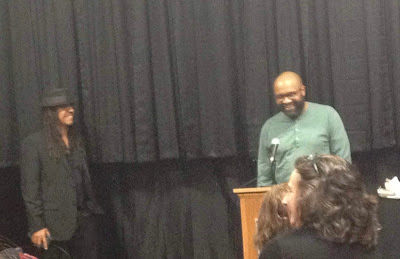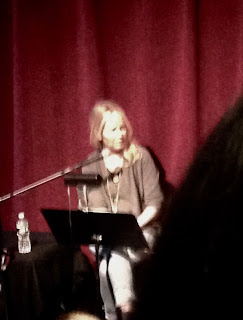-->
Letter #11:
October 4, 1944
Dear Dad,
Your
letters take ten days on the average to reach us. Considering everything, that
is good time.
[i]
On the contrary, I'm afraid that
our mail to you does not have such luck.
[ii]
The fact that our address remains the same probably figures in the final
reckoning. I always address my letters to you with the latest APO address we
have received. Consequently, I suspect, some letters did not bear the actual
APO at the time.
At
the present, I am waiting to hear the verdict on my lower left five (lower jaw,
left side, fifth from the front). I went to the School of Dentistry yesterday,
since it was the first day of classes, and I was examined first, and then the
student started work on the tooth. The original filling had broken off the
tooth, and it just needed a little prying to come out completely. There was
decay underneath where the filling had been, and it had gone down into the
pulp. The student said that if he didn't take away the decay, he couldn't save
the tooth, but that if he took away much of the pulp, he couldn't save it
either. But, however, he took away some of the decay and filled the cavity with
cement, and I am to come back tomorrow for the verdict. If it hurts me much by
tomorrow at 2 P. M., he will either desensitize the tooth or extract it.
[iii]
Also,
I am waiting for October 23, for that is when I can be examined for the ERC. If
I pass this time, I will start at whatever college the army designates on Nov
5. As I said before, tuition, room, board, books, uniform and medical care are
furnished, but no pay, free mailing privileges or railroad furlough rates.
Extra beside the regular college course is about five hours a week each of
military and physical training. Thus, it will not be too big a change when I
am eighteen, to live a hard physical life with only other young men, and there
will be only other young men because it has been officially announced that in
the next year, eighteen-year-olds will furnish all the needed manpower, that
is, a major portion of it, the rest being twenty and under. So, until then, I am
leading a static existence, since all I can do is odd jobs around the house,
read, and rest. I cannot help but think how nice it would have been if I had
(not)
[iv] broken my leg last March, and had known
about this program when I graduated from high school. I would have been able to
start college on July 5, since one starts on the beginning of the month after
he passes his physical. As it is, I shall still receive three twelve-week
terms, although I will be eighteen in the middle of the third term. A student
is allowed, in this program, to finish the term in which he becomes eighteen.
There are periods of one week between the terms during which the student can
either return home at his own expense or remain at the college at the
government's expense.
[v]
Last
Saturday, I stepped on an old rusty nail pointing upward from its position in a
block of wood.
[vi] I washed it
off good with alcohol and then cauterized it with iodine, at the advice of Dr.
Homer Smith.
[vii] Then I went down to him and he gave me
the anti-tetanus shot to make sure that I would not incur that dangerous
infection. Yesterday, I could already walk normally without pain, and the
puncture is healing nicely, suggesting that my repairing organisms are not
under par.
(continued on page 2)
Unless
the Allies in France undertake a gigantically successful campaign in the next
few weeks, all hope, outside of something unexpected, of defeating Ger-many in
'44 is gone. The Russians have had such successful experience in winter
fighting on a long, tough front, but they have not offered any of their
military leaders and personnel to help us. But whether even this is true or not
remains to be seen. The role of all those in (the) continental U.S.A. except
"duly constituted authorities," is that of almost an outsider
observer as far as speculation goes. Otherwise, we must carry on as though the
war were going to last past our lifetimes, and thus put our whole energy into
the task immediately before us. Even if this admonition were told to all,
however, it would fall on many deaf ears, I am afraid.
[viii]
Since
I have not yet attained my maturity, therefore, I am not going to worry about
these things as impossible to remedy, since I am not sure that I cannot learn
the means of remedying the situation. Education continues throughout life, of
course, but most of it (after earning a degree and learning how to live in a
community and succeed at one's job) is filling in the details. It is the major
ideas that I am out for now. The immensity of information and knowledge that
has already been accumulated, and that which has not yet been found, sometimes
staggers the imagination to the point where one feels that he cannot possibly
learn enough to be of any use in society. However, extended thought on such a
plane is not healthy for one, and therefore I shall not become deluded on
account of it.
[ix]
Until
my next letter, then, I am your
loving
son,
Stewart
[i] Unfortunately, the letters
that dad was sending back at this time have not survived.
[ii] This is actually not the
case. Dad wrote on this letter that he received it on October 13th, nine days
after it was dated.
[iii] I sort of shudder when I
read this description of what Stewart was experiencing at the U of Minnesota
School of Dentistry, and I marvel at what he was willing to put up with in
order to get inexpensive dental care. But I remind myself that he may not have
had any choice. He had no dental insurance, he could not afford the
"professional" option, and his teeth were in bad shape.
[iv] The word "not"
isn't in the original letter, but I think that is a typo - the sentence doesn't
make any sense as written.
[v] We get a lot of details in
this paragraph about how the ASTRP program actually worked. It strikes me as a
fairly well-thought-out program. It is basic - there are not many
"frills" - but it was a real opportunity for a seventeen-
year-old.
[vii] I don't remember this
physician's name. I don't think he was our family doctor, whose name was Baker
as I recall. But my memory could
easily be faulty.
[viii] What Stewart seems to be
saying in this paragraph is that the average citizen doesn't really know how
long the war will last, and thus needs to buckle down and do the task at hand; but
- a lot of people aren't willing
to do that. This seems to be a kind of rationale for the decisions he has made.
I wonder if he was getting some negative reaction to his plans from some
quarter?
[ix] This paragraph, which is so
formal and deliberate, is sort of a classic example of the way Stewart's mind
worked and his way of expressing himself. I have to keep reminding myself that
he was only seventeen when he wrote this!
Letter #12:
-->October 9, 1944
[i]
Dear Dad,
Even though a half-continent and an ocean separate us on
this Christmas physically, nothing can separate us spiritually. The comradeship
which we have had together each year on the day commemorating the birth of
Christ is something intangible, to be touched by no one else. Looking forward
to the next December 25th that we spend together, I wish you and all the men
that refer to you as "my chaplain" a very Merry Christmas.
[ii]
Your
son,
Stewart
[i] This letter is clearly dated
Oct. 9th, but it is wishing dad a Merry Christmas. Either Stewart was really
making sure dad got this in time for Christmas - over 2 1/2 months in advance!
- or he mis-wrote the date.
[ii] Such a
touching note. Dad surely must have wept when he received this!



























